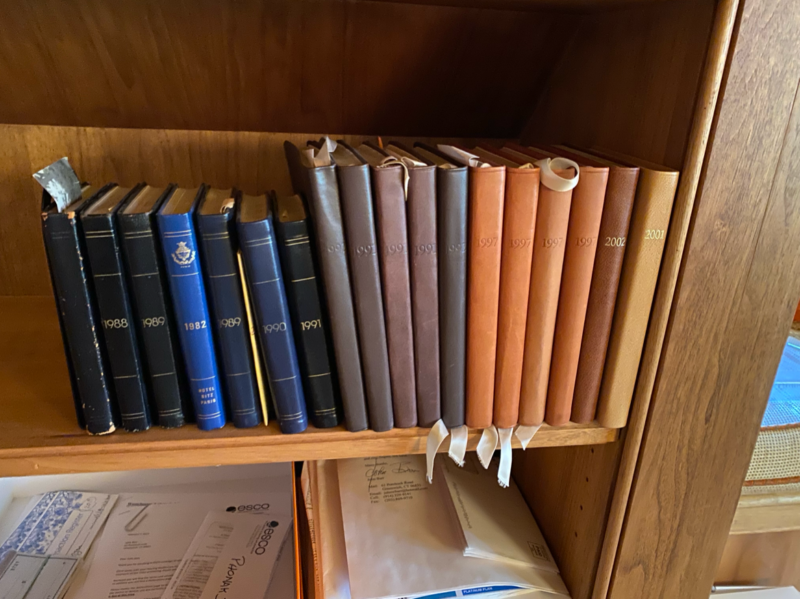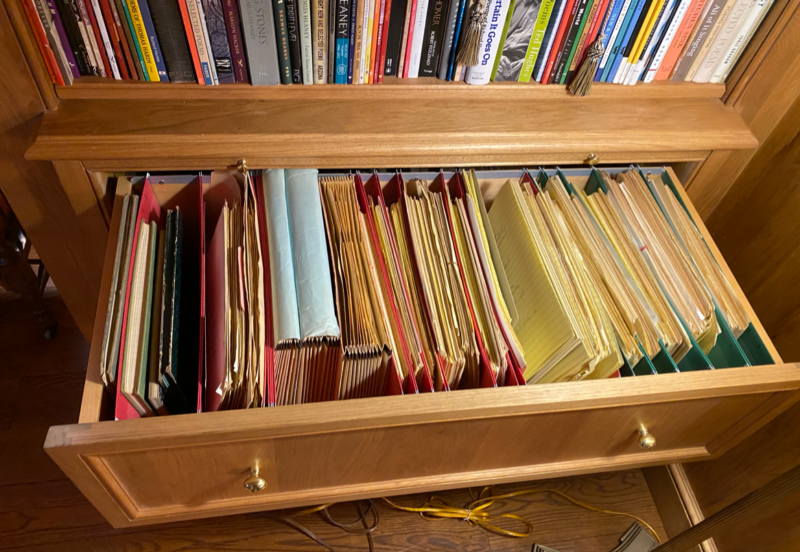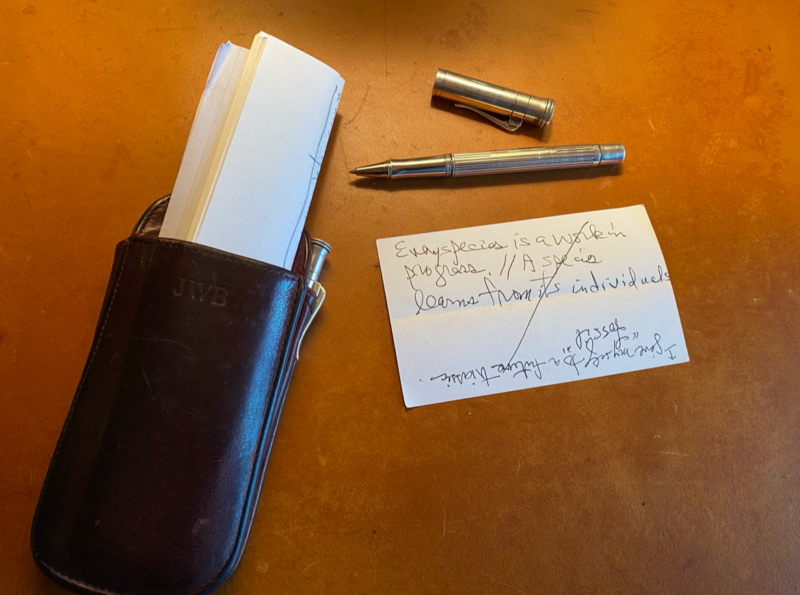About making love Hemingway said, “It’s always the same but always different.” Poets might say the same about how they write.
I carry with me 3X5 cards to write down a line when it comes unannounced. Capturing those fugitive lines matters because they don’t last long.
Once, in a movie theater, a line came, and I wrote it down even though I couldn’t see in the dark. When I got home the card was blank: I had written with the wrong end of the pen. Like Mickey Spillane at a crime scene, I shaded the impression with a pencil, and that lost line eventually made it into a poem.
When the cards pile up I copy them into journal books, which, in my case, go back to 1986 (although I was writing, or learning to write, poems 20 years before that). But the journals are more than a repository. In Part 2 of this essay, I’ll explain how.

If a line feels like it could turn into a poem I start a file of drafts. In a couple of drawers like this one, the history of each poem comes to rest.

Mss
Since I start things on the margin
— cocktail napkins, cancelled checks,
timetables trying to be reliable —
and since I save it all, I know
there are good words buried and lost
in those fat accordion files, words
that sounded good at the time,
that I promised to get back to,
rhyme trains that never left Grand Central,
monikers that chattered like silverware
at 30,000’, sounds struck
sheer of sense — coin of a realm —
from a currency of air, pronounced
like blessings on an express world,
soul puffs, plain mistakes,
angels, working definitions of.

